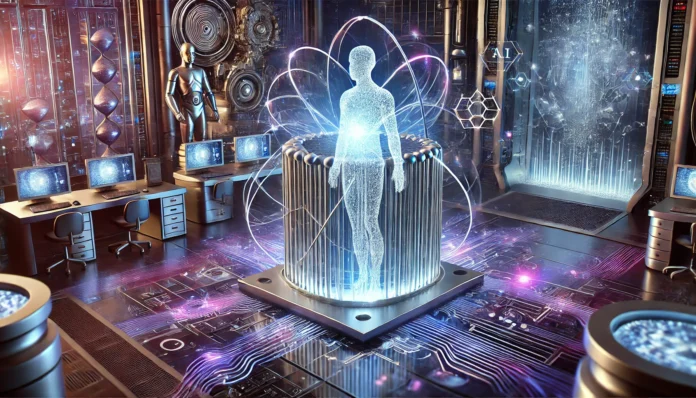Quantum computing, a revolutionary field of technology, is set to redefine how we solve complex problems, and Artificial Intelligence (AI) is at the forefront of this transformation. By combining the predictive power of AI with the computational might of quantum systems, we can address challenges that were once considered insurmountable. From optimizing supply chains to revolutionizing drug discovery, the synergy of AI and quantum computing is unlocking possibilities that could reshape industries and scientific research.
Understanding Quantum Computing
Quantum computing operates on principles of quantum mechanics, utilizing qubits instead of traditional bits. Unlike classical bits, which exist as 0 or 1, qubits can exist in multiple states simultaneously, a property known as superposition. Coupled with entanglement and interference, quantum computers can process vast amounts of information in parallel, making them exponentially more powerful for certain tasks.
The Role of AI in Quantum Computing
AI enhances the capabilities of quantum computing by improving algorithms, enabling data analysis, and creating efficient quantum models. Together, they form a powerful duo capable of addressing problems that require immense computational power.
1. Accelerating Machine Learning
Quantum computing can speed up AI training processes by efficiently handling large datasets and complex models. For example:
- Quantum Neural Networks: These AI models utilize quantum computing to perform faster optimizations, enabling breakthroughs in fields like image recognition and natural language processing.
2. Solving Optimization Problems
Quantum algorithms, combined with AI, can solve optimization problems with applications in logistics, finance, and energy.
- Example: D-Wave Systems has collaborated with companies to optimize complex processes such as airline scheduling and portfolio management using quantum-enhanced AI.
3. Enhancing Cryptography
Quantum computing poses both opportunities and threats to cryptography. AI can assist in developing quantum-resistant algorithms to secure sensitive data.
Applications Across Industries
1. Drug Discovery and Material Science
Quantum-AI collaboration is revolutionizing molecular simulations, enabling faster identification of new drugs and materials.
- Example: IBM Quantum and pharmaceutical companies are using quantum AI to predict protein folding, a critical step in understanding diseases and designing treatments.
2. Climate Modeling and Sustainability
AI-driven quantum models analyze environmental data to predict climate patterns and optimize renewable energy usage.
- Example: AI and quantum systems are being explored to improve wind farm layouts and maximize energy output.
3. Artificial Intelligence Itself
Quantum computing could revolutionize AI research by enabling new architectures and solving problems that are currently computationally prohibitive.
Challenges in AI-Quantum Integration
Despite its promise, the integration of AI and quantum computing faces significant hurdles:
- Hardware Limitations: Quantum computers are still in their early stages, with limited qubits and high error rates.
- Complexity of Quantum Algorithms: Developing algorithms that leverage quantum mechanics while integrating with AI remains a significant challenge.
- Cost and Accessibility: The infrastructure required for quantum computing is prohibitively expensive and limited to a few organizations.
The Future of AI and Quantum Computing
As quantum hardware and AI models continue to evolve, their combined potential could lead to:
- Breakthroughs in Fundamental Science: Accelerating discoveries in physics, chemistry, and biology by simulating complex systems.
- Advances in AI Models: Developing AI systems that can learn and adapt at unprecedented speeds and scales.
- Democratization of Quantum Access: Cloud-based quantum computing platforms like IBM Quantum Experience are already making strides in accessibility, allowing researchers worldwide to experiment with quantum-AI integrations.
Conclusion
The convergence of AI and quantum computing is a game-changer, pushing the boundaries of what technology can achieve. While the journey is still in its early stages, the progress made so far hints at a future where complex problems across industries and sciences can be tackled with unmatched precision and speed. Together, AI and quantum computing are not just redefining problem-solving paradigms—they are shaping the future of innovation itself.





